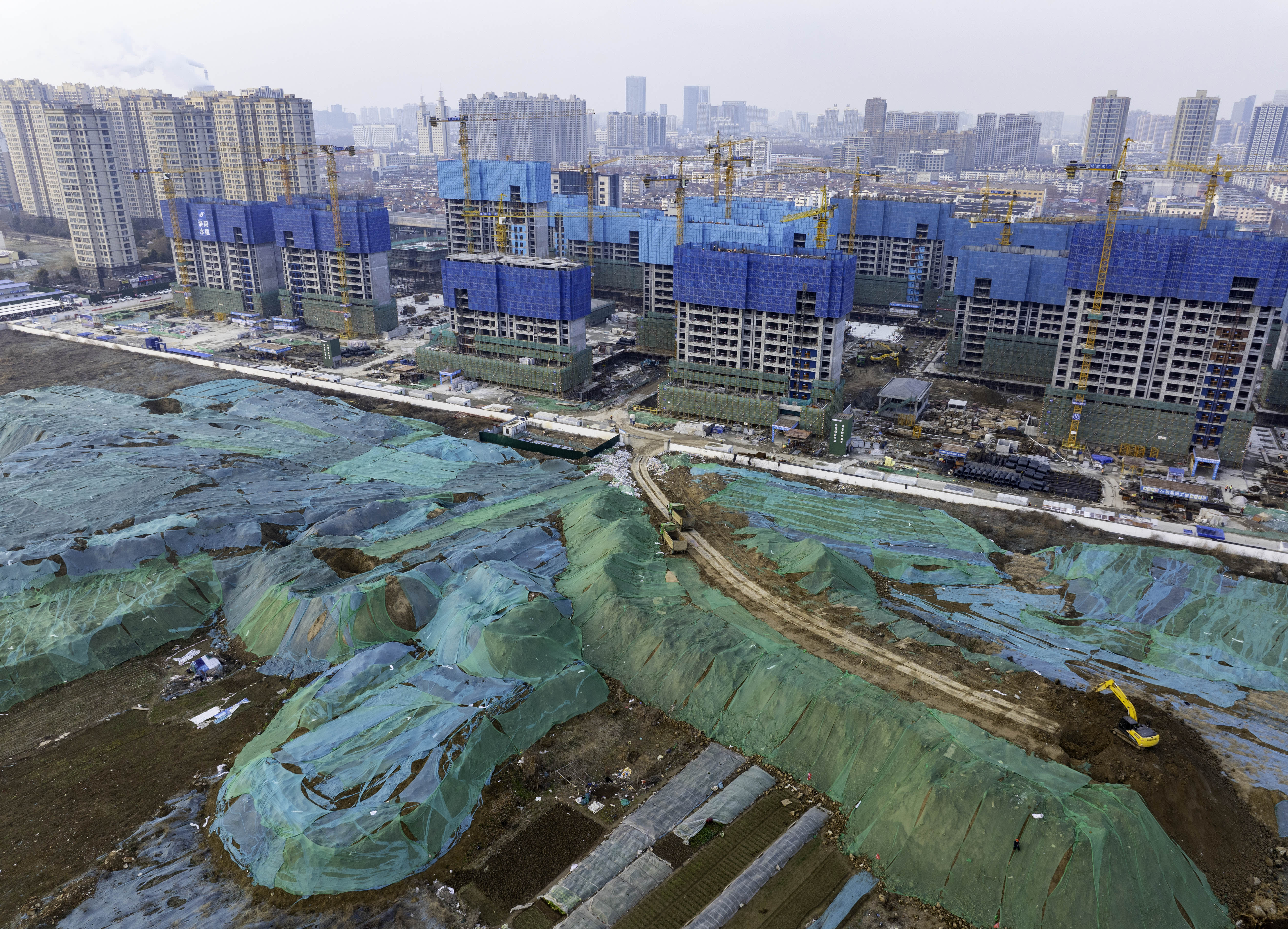Shown in the image is an ongoing real estate project in Huai’an, China, on Jan. 21, 2024.
The IMF foresees a reduction of 35% to 55% in the “essential demand for new housing” in China due to a decrease in new urban households and a substantial quantity of unfinished or unoccupied properties. The diminishing demand for new housing will make it challenging to absorb surplus inventory, thus extending the adjustment into the medium term and impacting growth, as mentioned in the report. China’s real estate sector and related industries have contributed to approximately a quarter of the country’s gross domestic product. The recent property market decline follows Beijing’s crackdown in 2020 on developers’ heavy reliance on debt-driven growth. In response to the prediction of a roughly 50% decrease in new housing, China’s representative to the IMF, Zhengxin Zhang, expressed skepticism in a statement included in the organization’s report released on Friday, stating that the likelihood of a significant decline in housing demand is very slim due to the persistent large demand for housing and the expected policy support to be gradually implemented. Zhang also raised doubts about the rationale behind the selected base period. The IMF report compared housing demand and new starts from the 2012-2021 period with estimates for 2024-2033.
China’s real estate sector experienced rapid growth over the past few decades, prompting authorities to caution against speculative investment in the housing market and emphasize the purpose of houses as a place for living rather than for speculation. In the 2010s, residential investment’s share of GDP in China reached or exceeded peak levels of property booms in other nations in the past, as noted by the IMF.
The substantial correction in the property market following government efforts to contain leverage in 2020-21 was deemed necessary and is advised to continue, according to the IMF report. In the past three years, heavily indebted developers from Evergrande to Country Garden have defaulted on U.S. dollar-denominated debt held by overseas investors. This week, a Hong Kong court ordered Evergrande to be liquidated. Since late 2022, Chinese authorities have made efforts to ease financing constraints for developers and new homebuyers. Nevertheless, central and local government initiatives to support the real estate sector have not been able to prevent a broad decline in the industry. The weakened consumer confidence due to uncertain future income and the decrease in Chinese stocks this year have also been noted by the IMF.
The Chinese authorities have viewed the fiscal stance in 2023 as “proactive” and intend to maintain such a stance in the upcoming year, according to the IMF report. The People’s Bank of China announced last week that effective Feb. 5 it would cut the reserve requirement ratio by 50 basis points, marking the largest such cut since 2021. Despite considering this move a step in the right direction, the IMF believes that additional monetary policy easing, particularly in terms of the policy rate instrument, is necessary. The IMF indicates that China must implement some monetary policy reforms.
In 2023, China’s economy grew by 5.2% according to official figures, which is slightly less than the 5.4% predicted by the IMF in December. The lower growth rate was attributed to weaker-than-expected consumption in the fourth quarter. The international lender forecasts that China’s growth will decelerate to 4.6% this year.
The IMF’s analysis has revealed that relocating supply chain production to the home country or allied countries could potentially reduce China’s GDP growth by approximately 6% and global growth by about 1.8%. Looking ahead, the IMF expects inflation to rise to 1.3% this year and highlights the decline in energy and food prices as the primary factors dragging down prices in 2023. The core consumer price index, which excludes food and energy prices, increased by 0.7% last year, exceeding the 0.2% rise in the overall CPI. While housing has heightened inflation in other countries, the real estate downturn in China has exerted downward pressure on prices, as observed in the IMF report.













